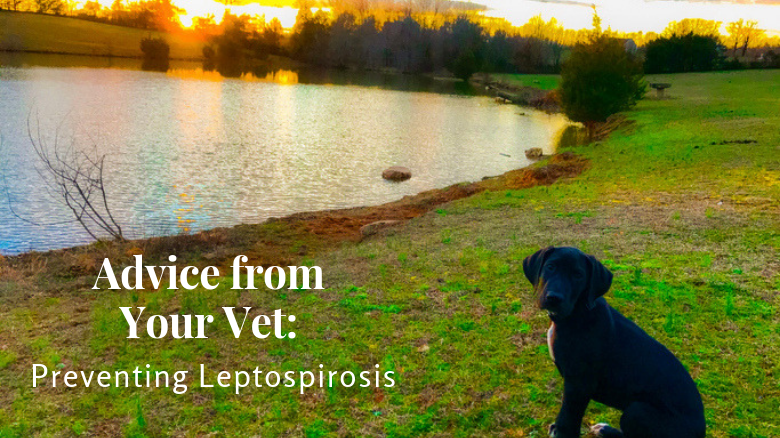In the News
Advice from Your Vets: Leptospirosis

It may not seem like it in the dark, snowy and cold days of winter, but warmer weather is approaching. With warmer weather, we want to discuss a common and concerning bacterial organism, called Leptospirosis.
Leptospirosis is an organism that can spread to animals and people. The leptospirosis bacterium is spread via urine of infected animals, which can live in water and soil for months. Due to Minnesota’s highly water populated areas, this organism is a significant concern for our pets and owners. Most commonly we see pets contract leptospirosis from drinking stagnant puddles, ponds, lakes and pools. Rodents and wild animals that urinate in this area contaminate the water and expose dogs and cats to this disease.
Most animals that present to the veterinary clinic with this disease are incredibly sick but have very non-specific symptoms. Most pets have a fever and are very lethargic. On lab work we will most commonly see elevated kidney and/or liver values. If gone untreated for too long, we can see permanent liver and kidney damage. There are specific lab tests to confirm a leptospirosis infection.
Fortunately, leptospirosis when contracted can be treated with a long course of antibiotics once diagnosed, but if gone untreated can be potentially fatal or result in permanent organ damage. Additionally, we can prevent this disease by vaccinating our pets. The leptospirosis vaccination that most veterinary clinics carry vaccinates for the most common strains of leptospirosis. The vaccination needs to be given annually and does not interfere with the diagnostic tests if a pet were to become in ill.
Leptospirosis in humans can be contracted from a pet by coming in contact with their urine. The bacteria can enter the body through skin or mucous membranes (eyes, nose, or mouth), especially if the skin is broken from a cut or scratch. Drinking contaminated water can also cause the infection. Outbreaks of leptospirosis in people are usually caused by exposure to contaminated water, such as floodwaters. Person to person transmission is rare. It can cause a wide range of symptoms in humans, which can be mistaken for other diseases. Additionally, pregnant woman who comes in contact with this organism are at a high risk for miscarriage.
We encourage you to ask your veterinarian if your pet is at risk for leptospirosis. A pet is never too old to contract the disease nor is a pet too old to receive the vaccination.





